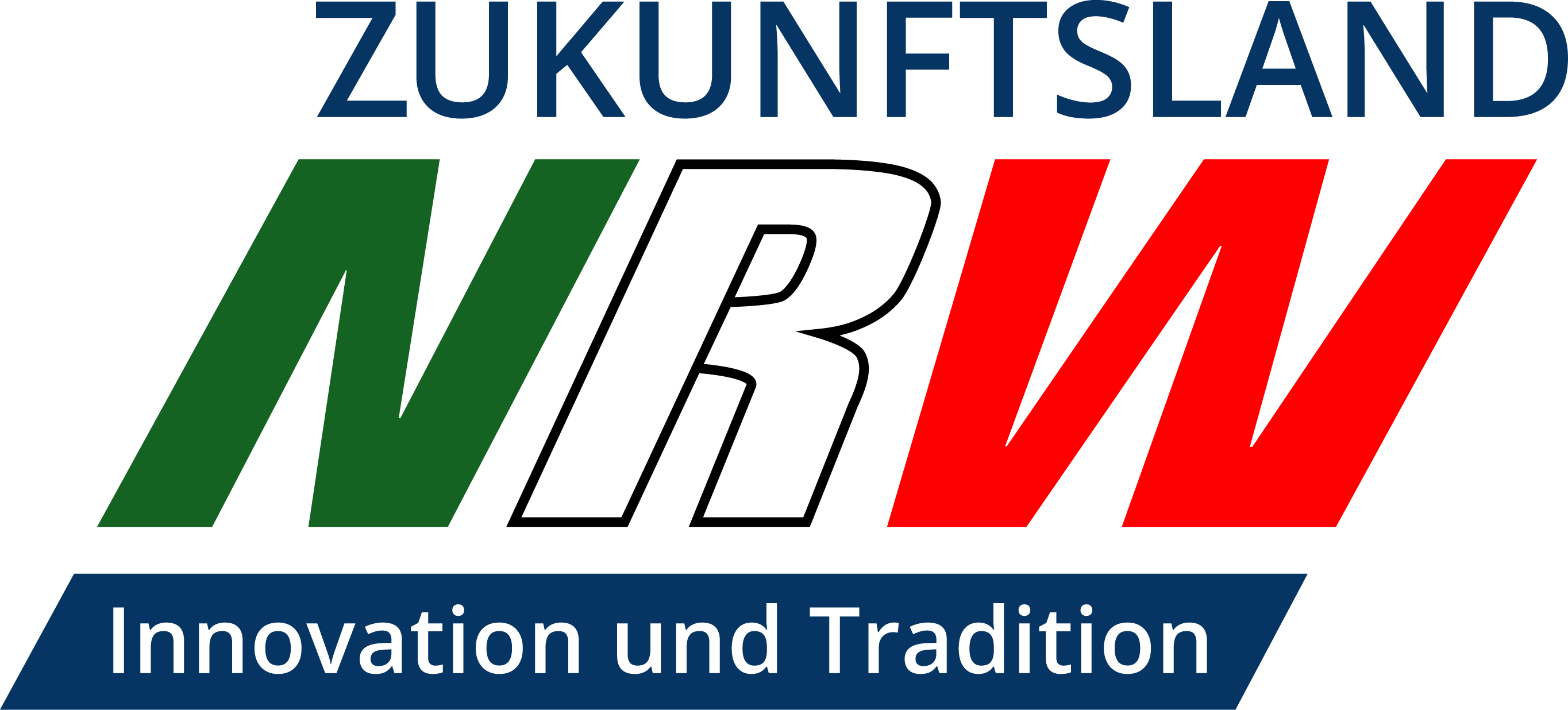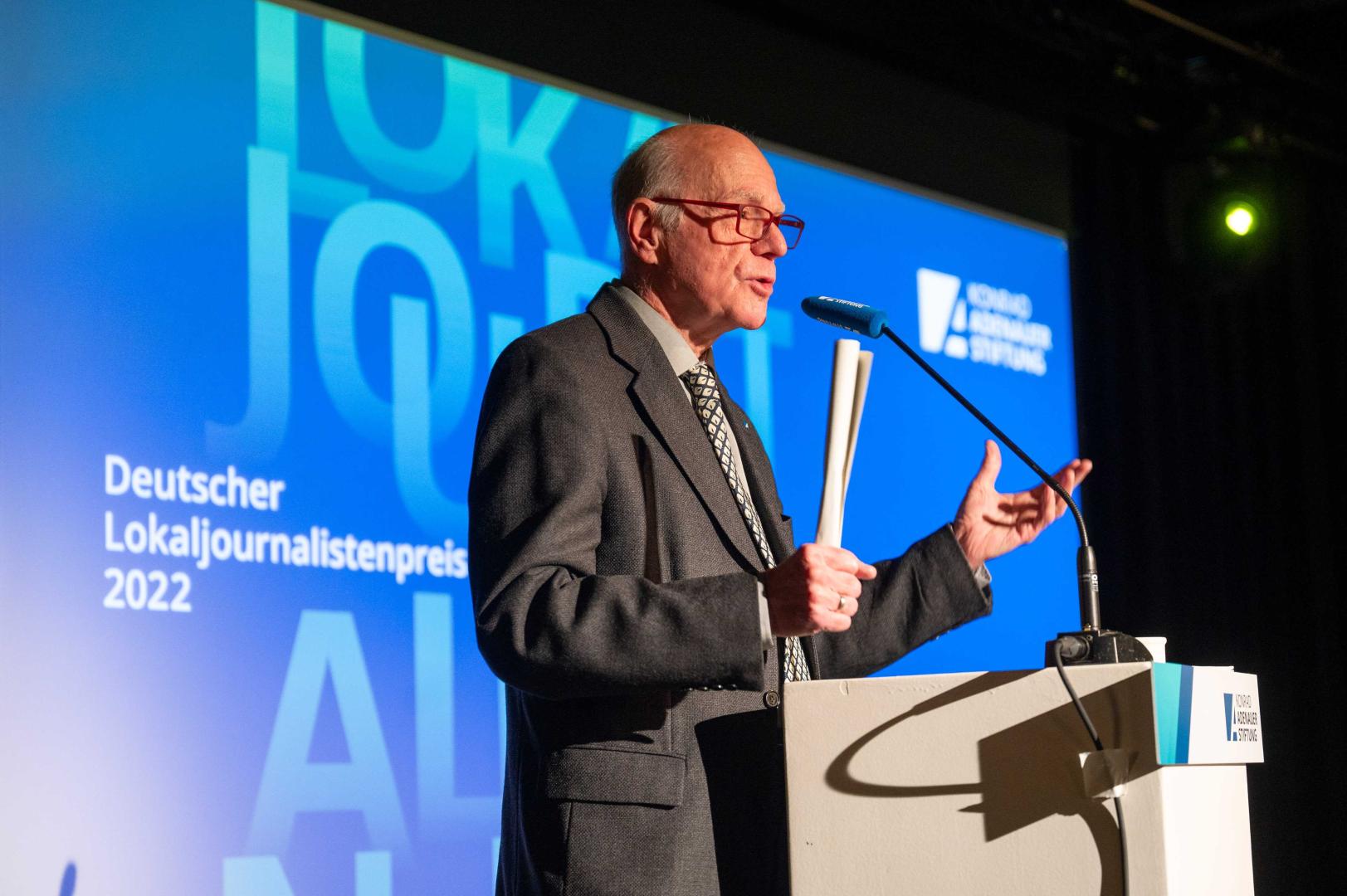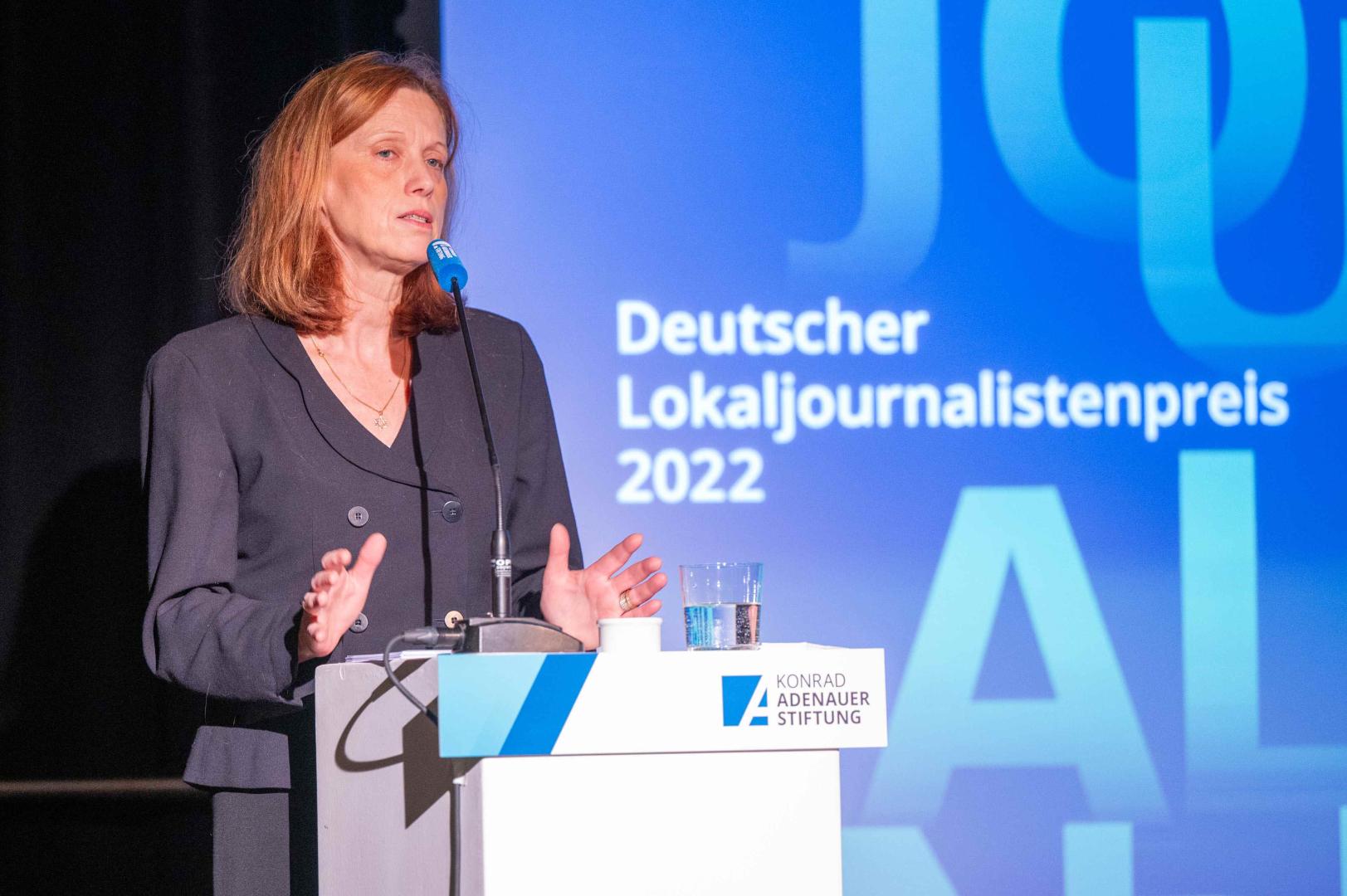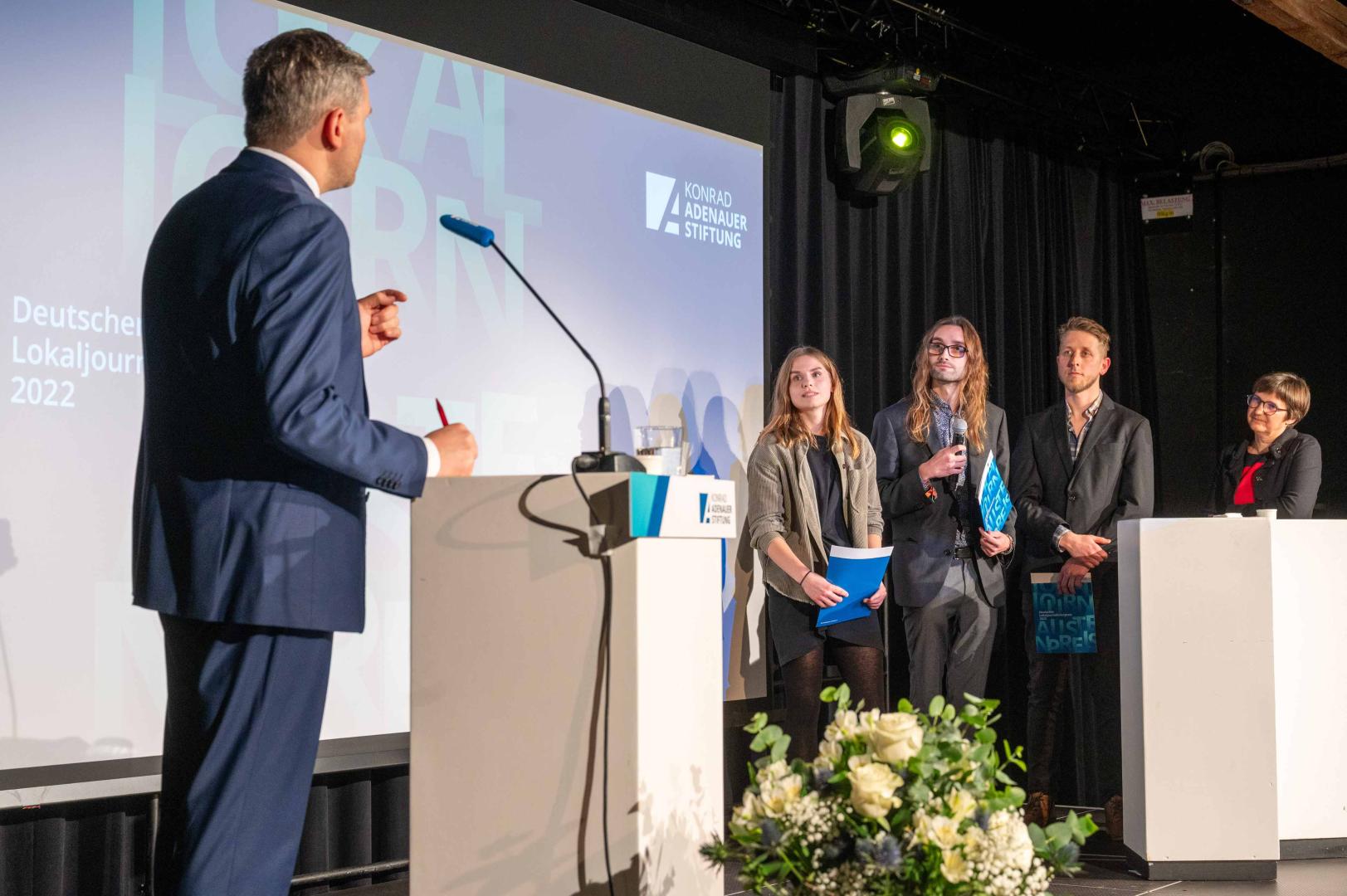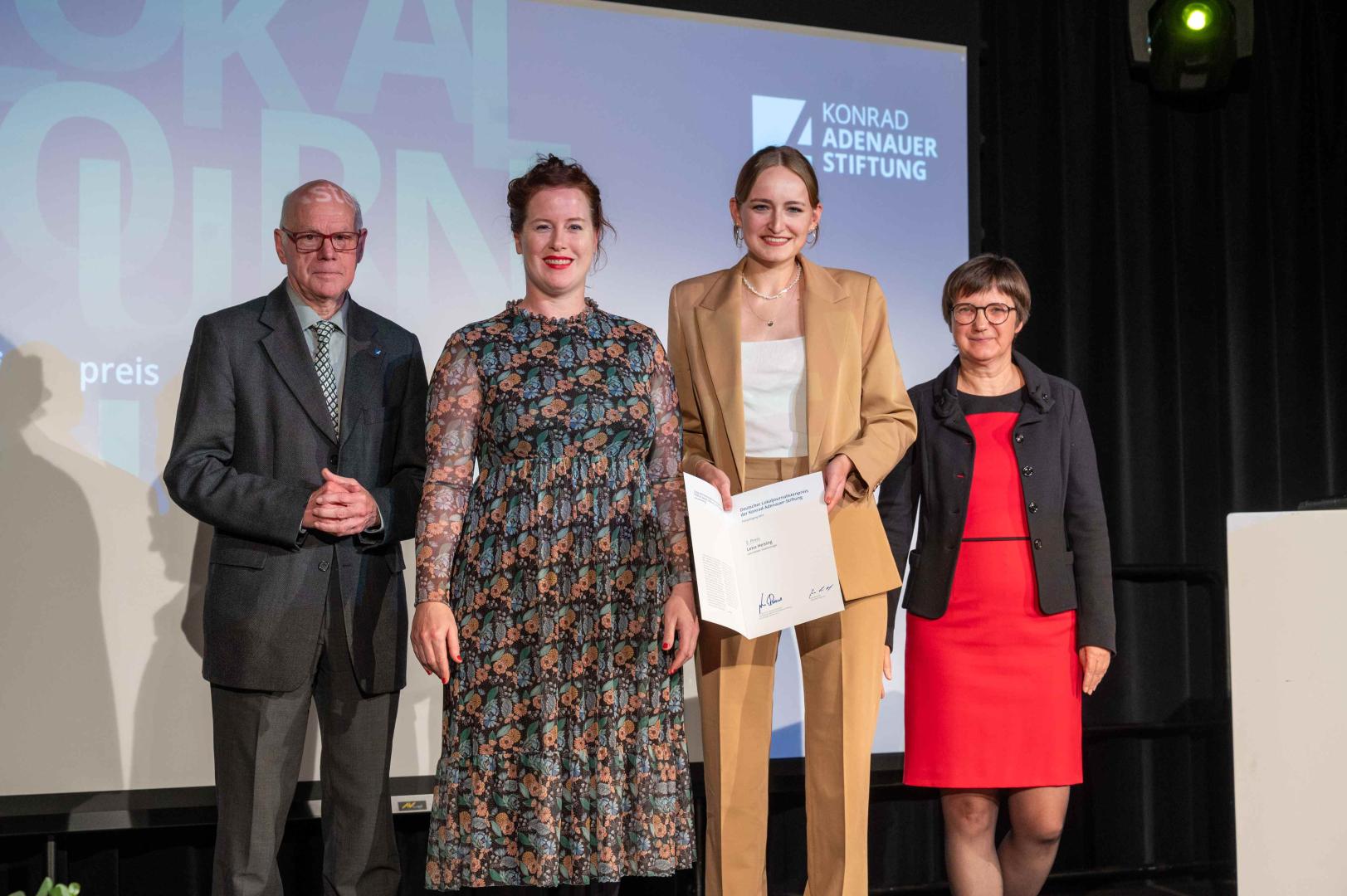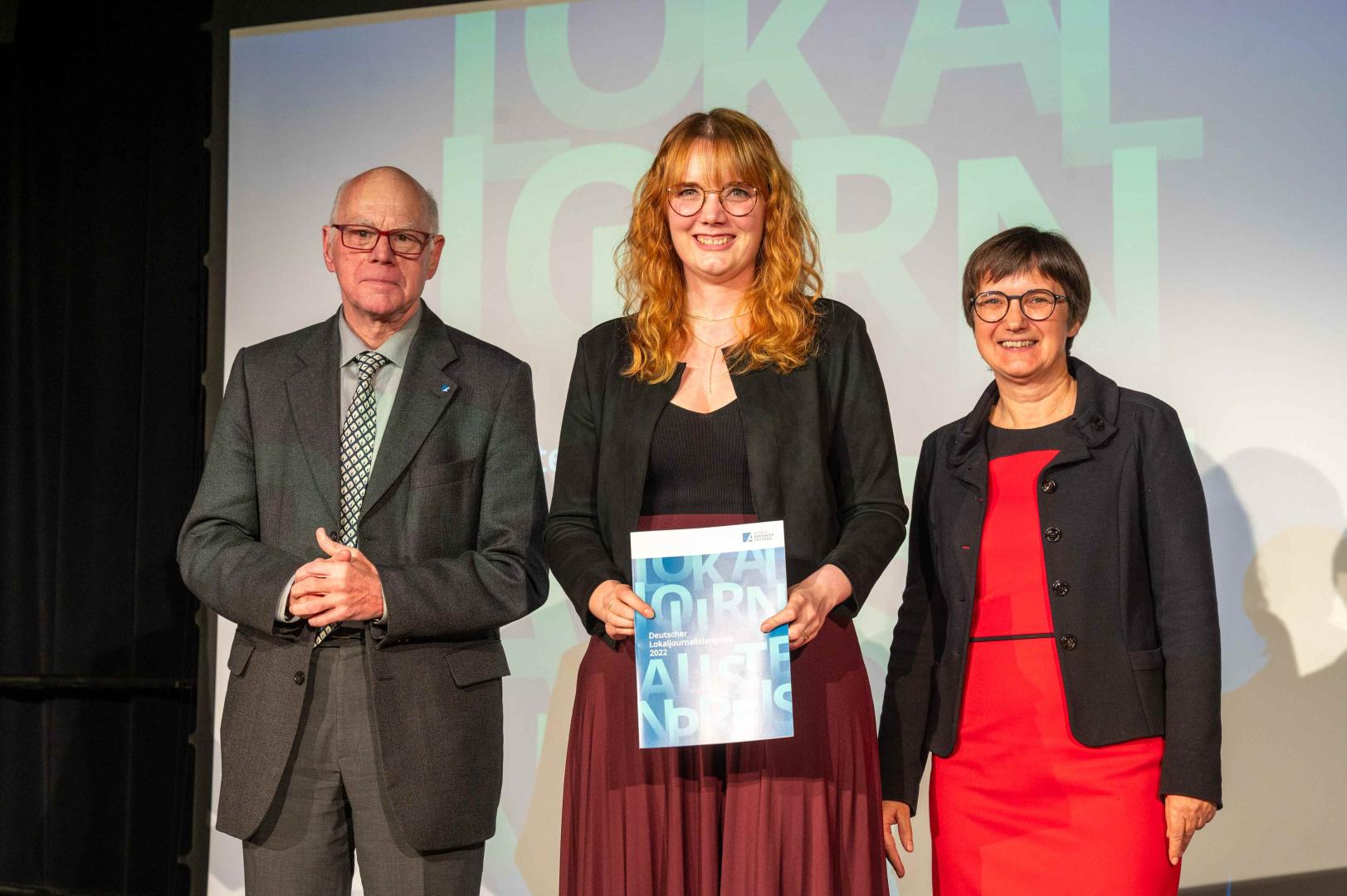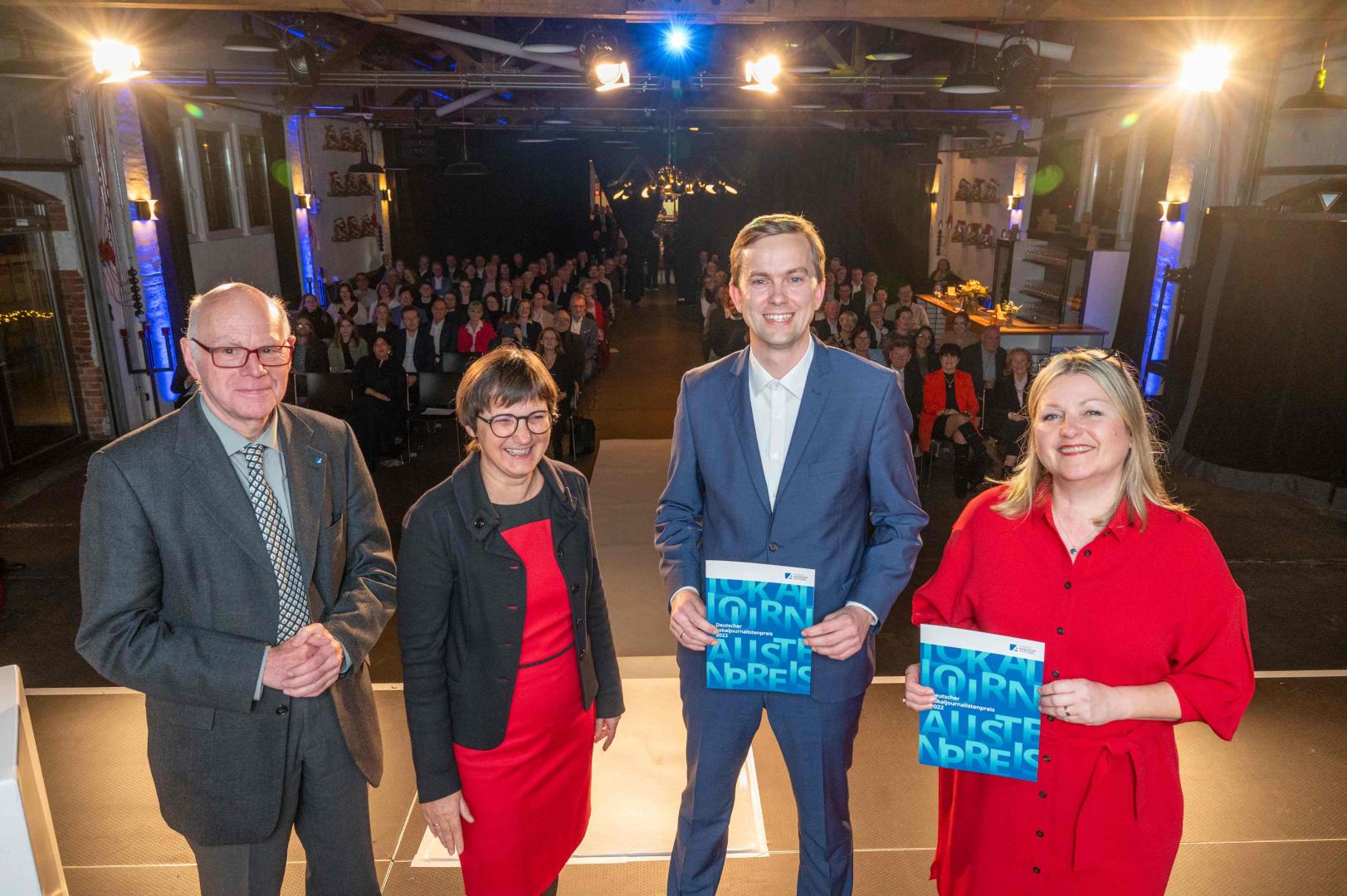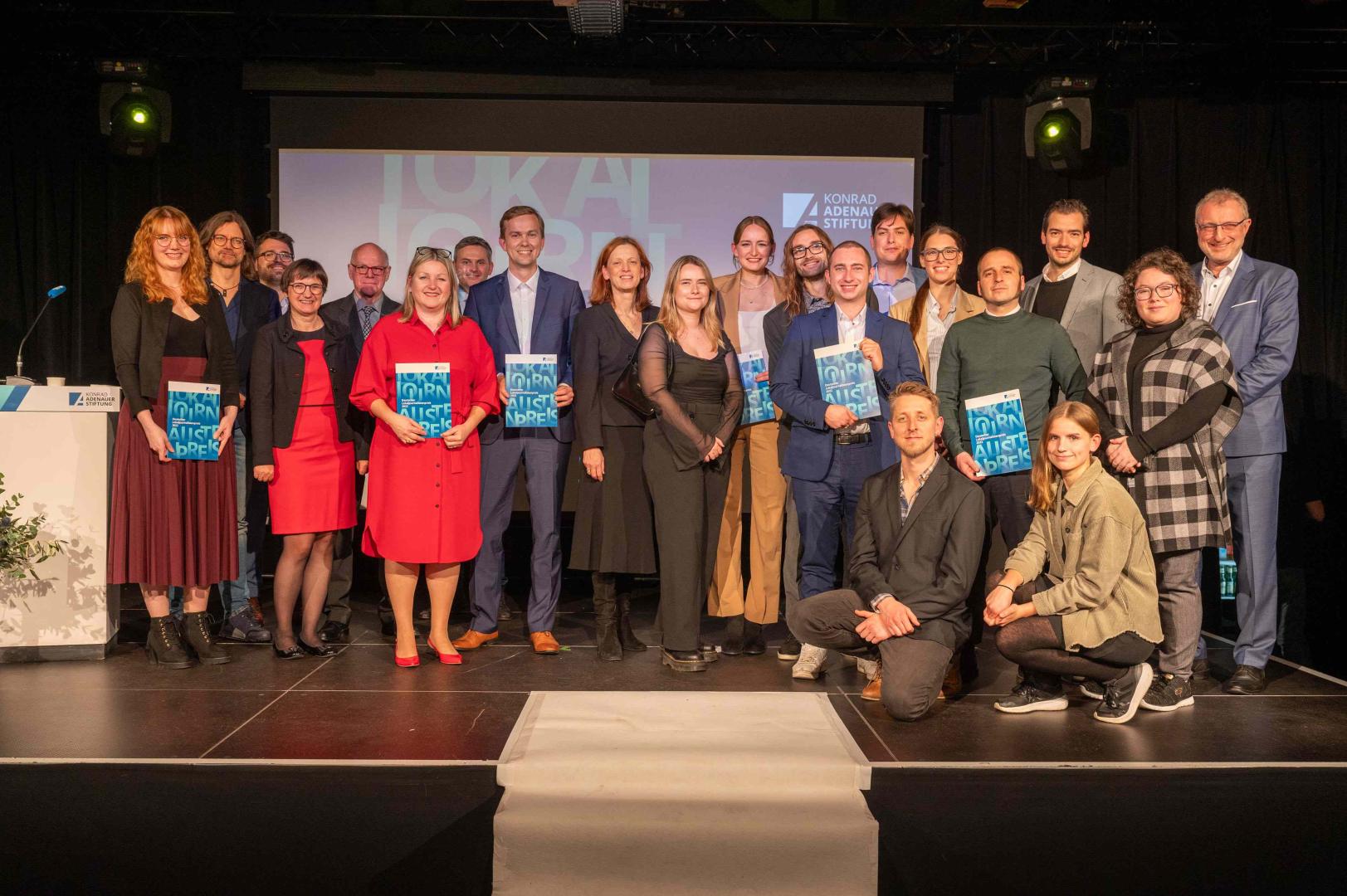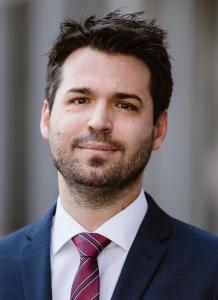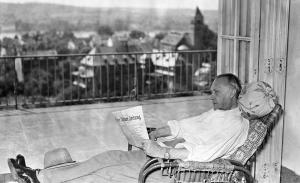At the beginning of 2022, Kieler Nachrichten launched an appeal to all readers to take a stand against antisemitism. The editorial team has now been honoured with the German Local Journalism Award for its multi-part series and the "Showing Light" campaign. When the jury made its decision in spring 2023, it could not have imagined how frighteningly topical the issue would become. Once again, Jews in Germany have to fear attacks. And so the award ceremony in Kiel was dominated by the Middle East war following the terrible attack by Hamas and its consequences, especially the increasing antisemitism in Germany.
In view of the tragedies in Israel and the Gaza Strip, the Chairman of the Konrad Adenauer Stiftung and former President of the Bundestag, Prof Dr Norbert Lammert, warned that the ceremony must be "a contribution to collective reflection". Everyone shares responsibility for ensuring that people, regardless of their origin and religion, "have a right to live safely here in Germany, with life and limb and according to their convictions". In her speech, Karin Prien, Minister for General and Vocational Education, Science, Research and Culture in the state of Schleswig-Holstein, encouraged journalists to counter anti-human tendencies: "Good journalism is a very effective tool against antisemitism," she said.
High reputation of the prize
Jana Klameth, spokesperson for the jury, also emphasised the importance of intelligent, knowledgeable and factual journalism, especially in difficult times. Colleagues should inform carefully, provide background information and categorise topics - "and thus enable people to form their own opinion - as difficult as that may be in the current times," said Klameth.
The jury also applied these standards to the texts submitted for the year 2022. A total of 313 texts, series and concepts were submitted by editorial teams. This included 46 applications from trainees. For Lammert, this high number of applications proves the extraordinarily good reputation of the award. For over 40 years, he said, the award has shown appreciation for local journalism and is also an encouragement for the award winners.
The catalogue of criteria is diverse and demanding. If you want to win an award, you have to implement concepts that are close to the people, tackle difficult, uncomfortable and unwieldy topics, act as an advocate for the readership and cultivate a democratic culture. In addition, editorial teams should keep an eye on the relevance of developments and events. According to Lammert, the Kieler Nachrichten's "Showing Light" campaign combines these aspects and also demonstrates a depressing topicality.
Education Minister Karin Prien emphasised two aspects in particular in her speech: the value of knowledge and education and the value of journalism. She emphasised: "Ignorance is not only a danger for the individual, ignorance is always a danger for society as a whole."Prien therefore sees the most important tasks of journalism as informing, awakening empathy and contributing to a combination of attitude and plurality. Good information always includes providing context and background knowledge, said the Minister.The war in the Middle East shows just how important empathy is. You can only understand the horror and suffering if you put yourself in the shoes of those affected.
However, empathy is just as important when reporting on social issues in one's own country.Here too, the Christian Democrat would like to read and hear more about the people, "so that an informed civil society can make its political decisions not only with its head, but also always with its heart". In addition, there must be an attitude that can be recognised from the editorial work."Such an attitude does not stand in the way of plurality, it makes it possible," emphasised Prien.The minister emphasised that understanding and comprehension, talking and listening are crucial for cooperation: "Our country needs an informed public that tries to be a good democracy every day with understanding and empathy." This also includes Jewish life. Germany must be a country in which Jews can live safely. Prien thanked the journalists for helping to make "our country a better place". And she called for journalists to be listened to "so that minds and hearts can recognise, understand and learn".
Strong field of applicants among the volunteers
Jana Klameth then honoured the 2022 award winners, highlighting in particular the strong field of applicants among the trainees, who impressed with both quantity and quality. The young editors dealt with topics such as housing shortages in large cities, inflation in everyday life, mobility and climate change. "And the vast majority of the Volo 2022 projects were also implemented excellently across media," said Klameth. The trainee project by Märkische Oderzeitung and Lausitzer Rundschau, which dealt with the topic of right-wing extremism in Brandenburg, finally made it onto the winners' podium. The jury was impressed by the volunteers' courage in tackling an extremely important topic. The contributions were characterised by a high level of expertise and objectivity.
Lena Heising, a reporter for the Kölner Stadt-Anzeiger, was awarded 3rd prize. In her report "Anaesthetised, abused, abandoned", she investigated a hospital and judicial scandal. Based on several months of investigative research, Heising described how a hospital doctor at Bethel Hospital in Bielefeld raped several female patients and how the scandal was subsequently concealed and covered up. She shows the failure of those responsible at the clinic and subsequently that of the investigating authorities. In Heising's reportage, the focus was not on the perpetrator, but on the victims. Klameth: "The reportage tells what happened without sensationalism and with great sensitivity for these victims." The jury said: "Thanks to this tenacious research, the chances have increased that such events will not happen again.
Dr Veronika Schreck received the 2nd prize for her series in the Main-Echo about the concerns in the rescue service in the newspaper's circulation area in Lower Franconia in Bavaria. Under the title "Rescuers in distress", Schreck describes the dramatic situation in the rescue service in eight parts. Staff shortages on the one hand, increasing deployments on the other. Added to this are often poor working conditions, a lot of bureaucracy and demands for better pay. The blue light reporter consistently utilises the basic virtues of a reporter: Going there, listening, asking questions, categorising, naming culprits, demanding consequences and pointing out opportunities for change. She provides a look behind the scenes and highlights problems that cannot be solved by those responsible in politics and healthcare alone. The jury says: "Veronika Schreck has succeeded brilliantly in holding up a mirror to society in her wide-ranging series and reigniting the debate about help for the emergency services. And on all channels. In addition to the series in printed form, there are also videos and a podcast on the topic.
Editorial team brought the topic into the public eye at an early stage
The editorial team of the Kieler Nachrichten received great applause for their "Showing Light" campaign, which won first prize. The starting point was a famous photo of the Hanukkah candelabra of the Posner family from Kiel. It stood on a windowsill of their Kiel flat at the time, with waving flags with the swastika in the background. The editorial team not only told the story of the candelabra and its owners, but also used the occasion to show what Jewish life looks like in Kiel today. "And in doing so, it opened up a debate that goes right to the roots of our coexistence," said Klameth. In its series, the editorial team asked and answered questions such as: Why is our society so polarised? How can it be that Jews are once again being attacked by both right-wing and left-wing extremist forces in Germany? Why is the state not doing more to counter hatred of Jews on the part of Muslim refugees? How can we ensure that Jews in Germany no longer have to hide because they are afraid of hostility, marginalisation and violence?
The jury praised: "The editorial team has succeeded in problematising issues such as the latent and growing hatred of Jews in Germany and bringing the topic to the public's attention much earlier than many other media. Editor-in-chief Stefanie Gollasch and deputy head of the local editorial team Dennis Betzholz, who accepted the award, reported that the entire organisation was behind the series and the campaign from the very beginning. And they made it clear that the discussion and reporting on it is far from over.
Deutscher Lokaljournalistenpreis 2022 - 1. Preis: “Licht zeigen”
YouTube
Deutscher Lokaljournalistenpreis 2022 – 2. Preis: “Retter in Not”
YouTube
Deutscher Lokaljournalistenpreis 2022 – 3. Preis: “Betäubt, missbraucht, im Stich gelassen”
YouTube
Deutscher Lokaljournalistenpreis 2022 – Sonderpreis für Volontärsprojekte
YouTube
Topics
About this series
The Konrad-Adenauer-Stiftung, its educational institutions, centres and foreign offices, offer several thousand events on various subjects each year. We provide up to date and exclusive reports on selected conferences, events and symposia at www.kas.de. In addition to a summary of the contents, you can also find additional material such as pictures, speeches, videos or audio clips.


